How Svitlana's Fairy Tales Play a Part in Strengthening Local Voices
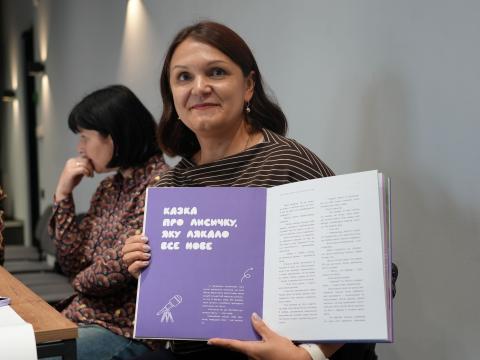
After conflict forced Svitlana to leave her hometown three times, she found peace in Lviv, western Ukraine, where she also found her calling, harnessing the magic of fairy tales in her work as a kindergarten psychologist.
Originally from Melitopol, she moved to Lysychansk and left in 2014 to return to Melitopol. “I left Melitopol on the first day of the conflict in 2022, having previously experienced the hardships of war in Lysychansk in 2014,” she explains. She later settled in Lviv in 2023.
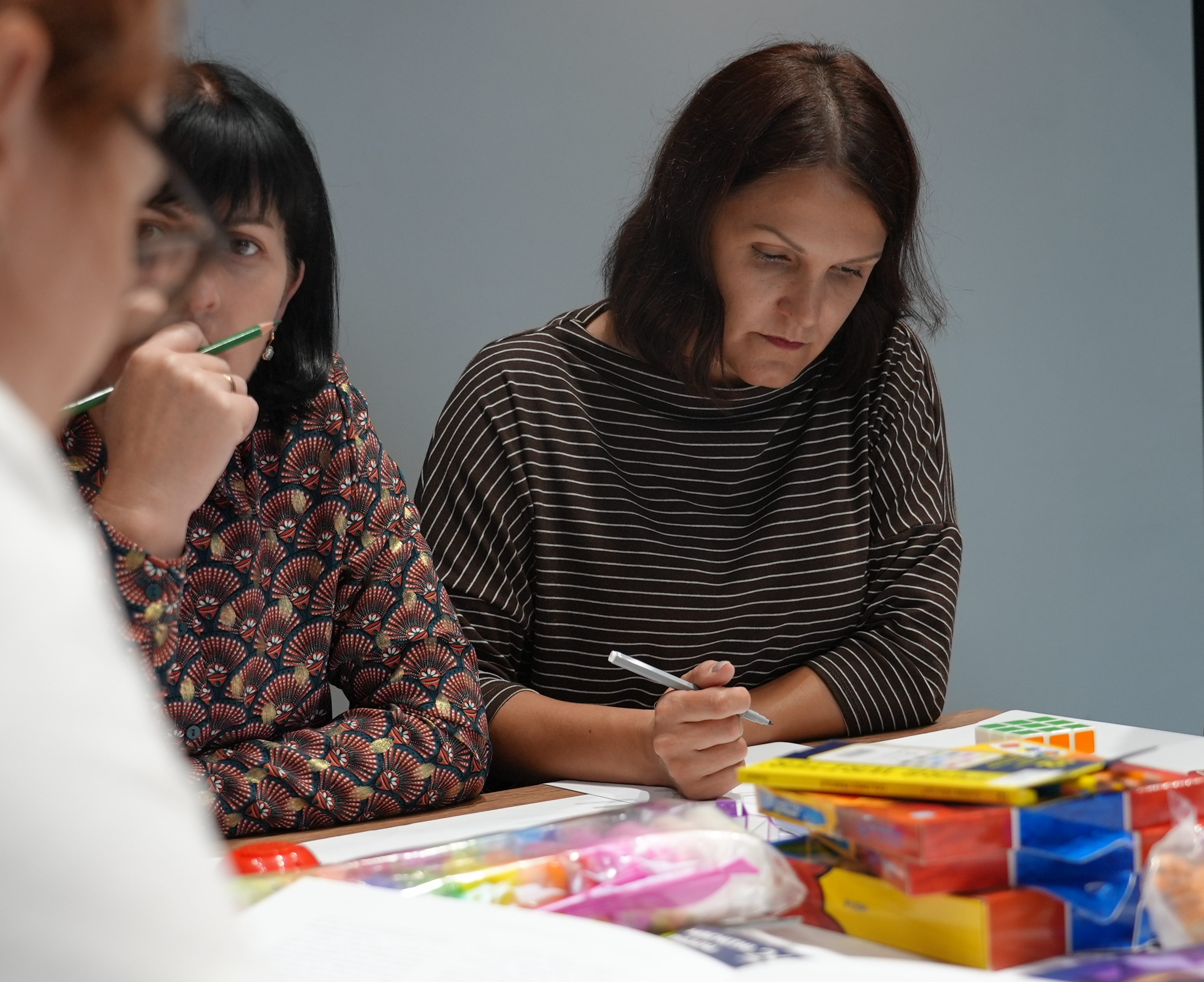
Svitlana attended a conference organised by Ukrainian Charity Foundation Ridni - a local partner of World Vision - and learned about their initiatives. She later secured a position at a private kindergarten in Lviv, where she continues to work to this day.
Subsequently, Svitlana became involved in Ridni's programmes and participated in the Stronger Civil Society for Early Recovery and Child Wellbeing in Ukraine project, supported by World Vision Australia.
Ridni is one of eight implementing partners in this comprehensive project, which spans multiple sectors – from providing essential needs like food, shelter, and healthcare to supporting education, promoting economic opportunities, strengthening local organisations, and strengthening community resilience.
Each partner organisation developed its own logical framework for the project, and each is unique and valuable for the development of civil society in Ukraine – an effort that World Vision actively supports.
Ridni focuses on addressing the psycho-emotional well-being of children, adolescents, and their families, making mental health a central element of their work.
“When I learned about Ridni’s initiative, I decided to join, because I believe it is vital – not only for my work, but also for my own mental health and resilience,” shares Svitlana.
The implementation started with two dedicated forums held in Dnipro and Lviv for social workers and psychologists working with vulnerable children and families.
These forums helped the professionals improve their skills, so they can better support the mental health of children and families, especially during stressful times.
The Worry Doll technique
To strengthen psychological resilience and assist participants in adapting to real-life challenges, Ridni also integrated psychological support with the Khvylalka (Worry Doll) methodology.
The Khvylalka (Worry Doll) technique is a simple, culturally rooted practice that encourages individuals to externalise their worries by making and sharing worry dolls, fostering emotional release, reassurance, and resilience in a supportive, tangible way.
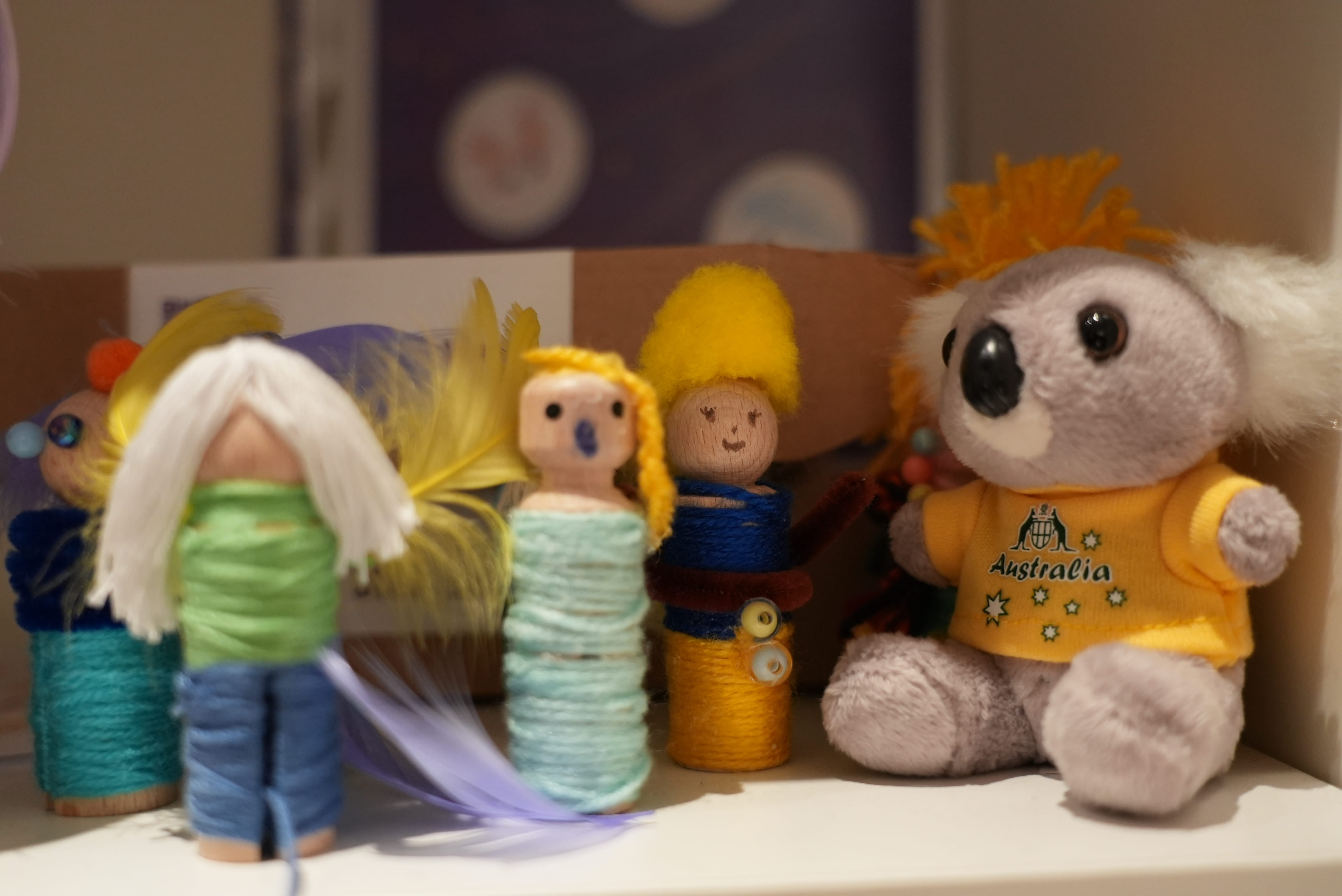
Fairy Tales as Therapy
The project also includes an online workshop focused on creating therapeutic fairy tales. This method helps children heal emotionally and express themselves by creating personalised stories in a safe and supportive environment.
Svitlana took part in all project activities and learned how to craft her own therapeutic fairy tales.
“When our grandchildren ask what we did during the war, the best answer will be: ‘We wrote books with fairy tales'. It shows that even in dark times, stories can give hope.”
“My fairy tale is about the fox who was afraid of everything new. Now, I see that this fox is a mirror of myself. I remember how daunting it was to look for a new job and go to an interview. But now I know for sure that trying new things can be exciting. All you need is a little courage to give them a try”, recommends Svitlana.
Remarkably, her fairy tale was selected to be included in a special collection, which became one of the project’s key outcomes. This collection was then distributed to 123 organisations working with children, providing creative support to many psychologists and social workers.
“The book was a pleasant surprise for me. First, I thought it would be just an electronic collection. When it was published in print, I was truly delighted,” she shares.
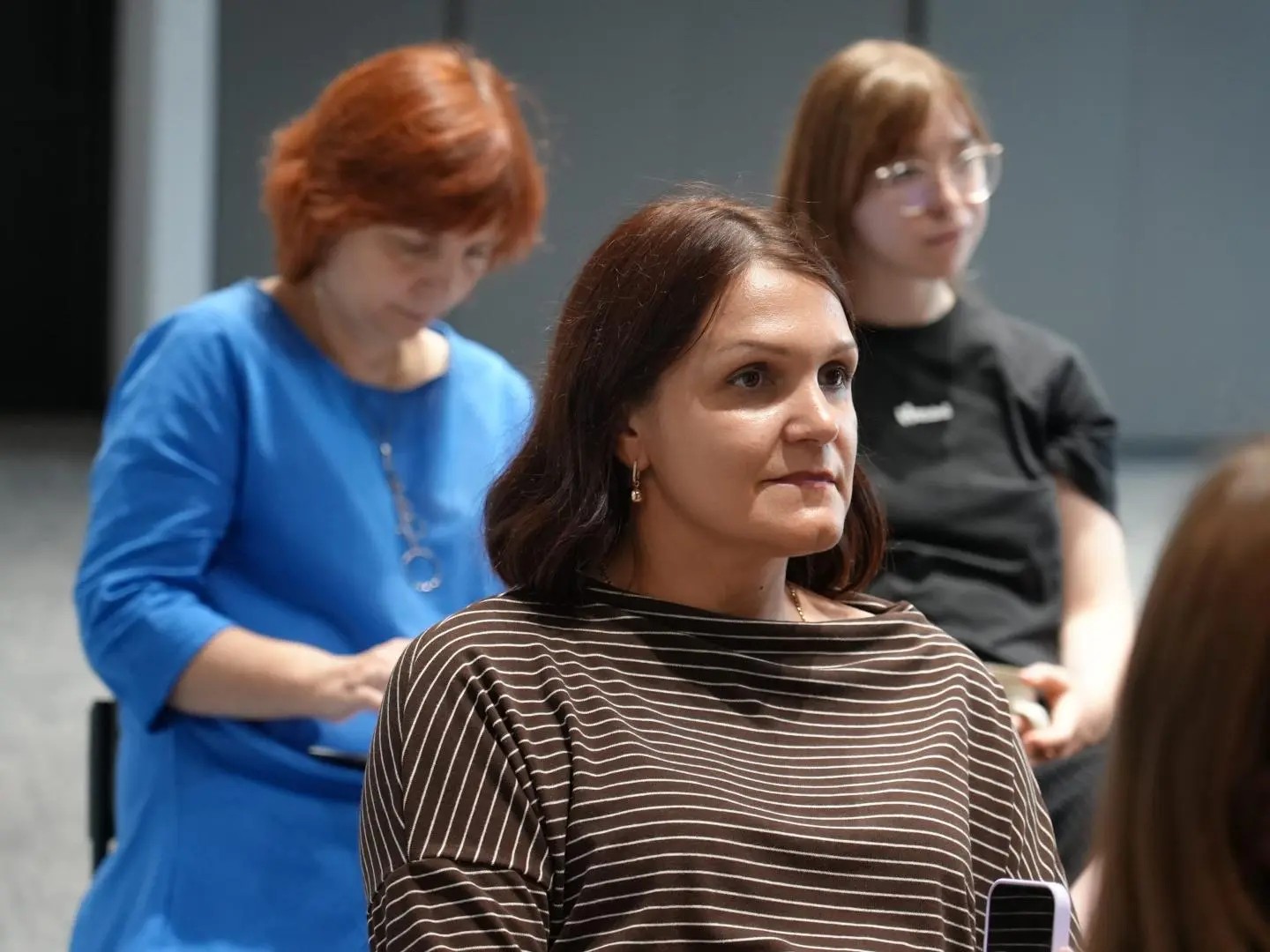
Svitlana applies all the methods she has learned in her daily work with children, educators, and parents, which enhances her proficiency and confidence.
Her kindergarten cares for over 100 children aged 2-7, and Svitlana works with all of them, including their parents. Therapeutic fairy tales and the Khvylalka (Worry Doll) methods are among the children’s favourites.
“Children enjoy working with worry dolls, both the small ones and the older ones. The older kids often call them simply ‘helpers,’ not dolls, as they want to appear more grown-up”, Svitlana smiles.
In collaboration with her colleagues, Svitlana plans to organise a workshop for educators and teachers in their kindergarten to share their experiences. The goal is to help them incorporate these methods into their lessons, as they are very beneficial for both children and adults.
“After leaving Melitopol and going through the difficult experience of severing ties with colleagues and friends, I believed I would never encounter such people again on my path. However, life proved me wrong, and I did meet new friends. Once again, my fairy tale fox symbolises how I continue to gain new experiences in life, even now,” shares Svitlana.
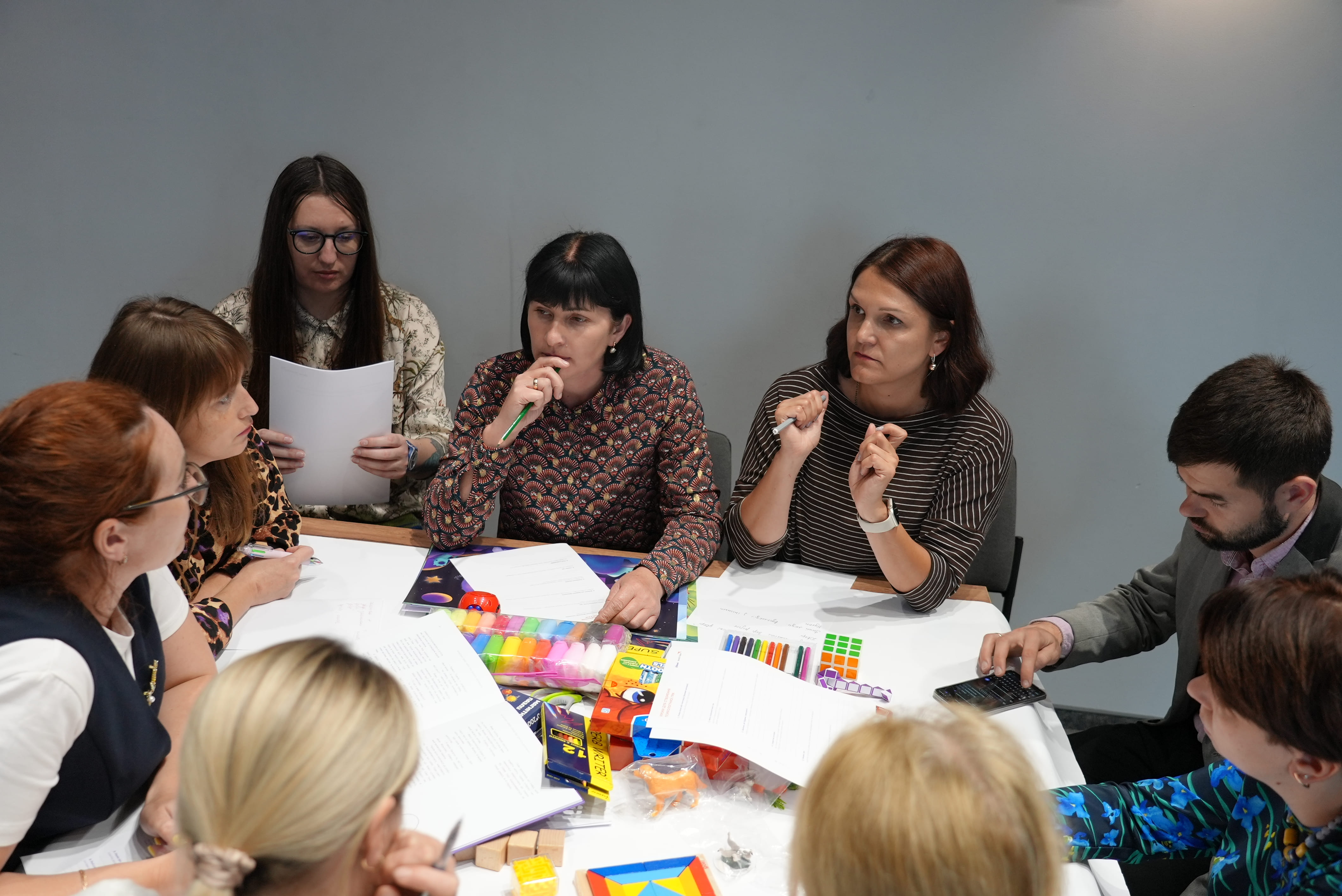
This project aims to build the skills of World Vision's partners to better support children and families. By helping strengthening local civil society, we enable them to take charge of development efforts and lead community-based solutions.
World Vision Ukraine Crisis Response (WV UCR) conducted an internal assessment in Ukraine using the NEAR Network’s Localisation Measurement Framework, revealing gaps in working with local actors from a localisation perspective.
Viktor Stepaniuk, World Vision’s Partnership Manager, explains, “Our assessment gave a set of recommendations on improving partnering approaches with local organisations. This project is designed to address those gaps, empowering local NGOs and CSOs with the skills, resources, and support needed to lead effectively, advocate passionately, and respond more impactfully to community needs across Ukraine.”
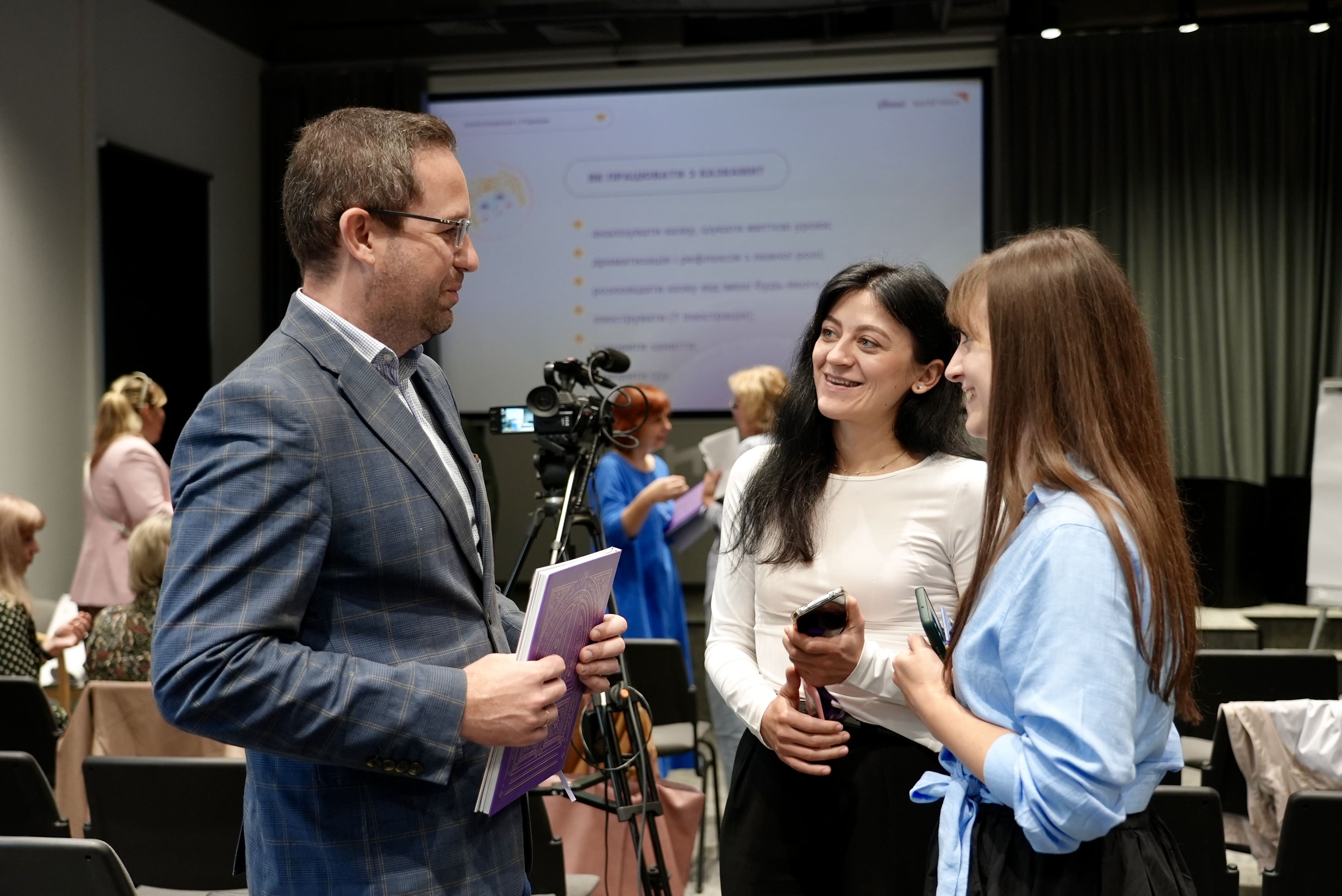
As part of this project, Ridni improved its project management skills, created a shared vision for the next three years, and provided staff training to strengthen teamwork and organisational capacity.
They also worked with educational centres, training providers, other foundations, and community groups, helping these partners to effectively use the project’s outcomes in their work with children.
“When our grandchildren ask what we did during the war, the best answer will be: ‘We wrote books with fairy tales'. It shows that even in dark times, stories can give hope and light,’” says Maksym Koliada, Psychologist and Educational Program Coordinator at Ridni Foundation.
The Stronger Civil Society for Early Recovery and Child Wellbeing project in Ukraine enhances local leadership, advocacy, and humanitarian response throughout Ukraine.
As of September 2025, World Vision Ukraine Crisis Response collaborates with 12 active local partners, with 33% of the WV UCR field budget allocated to NGOs.
Story and photos by Anastasiia Haviuk, Communication Officer